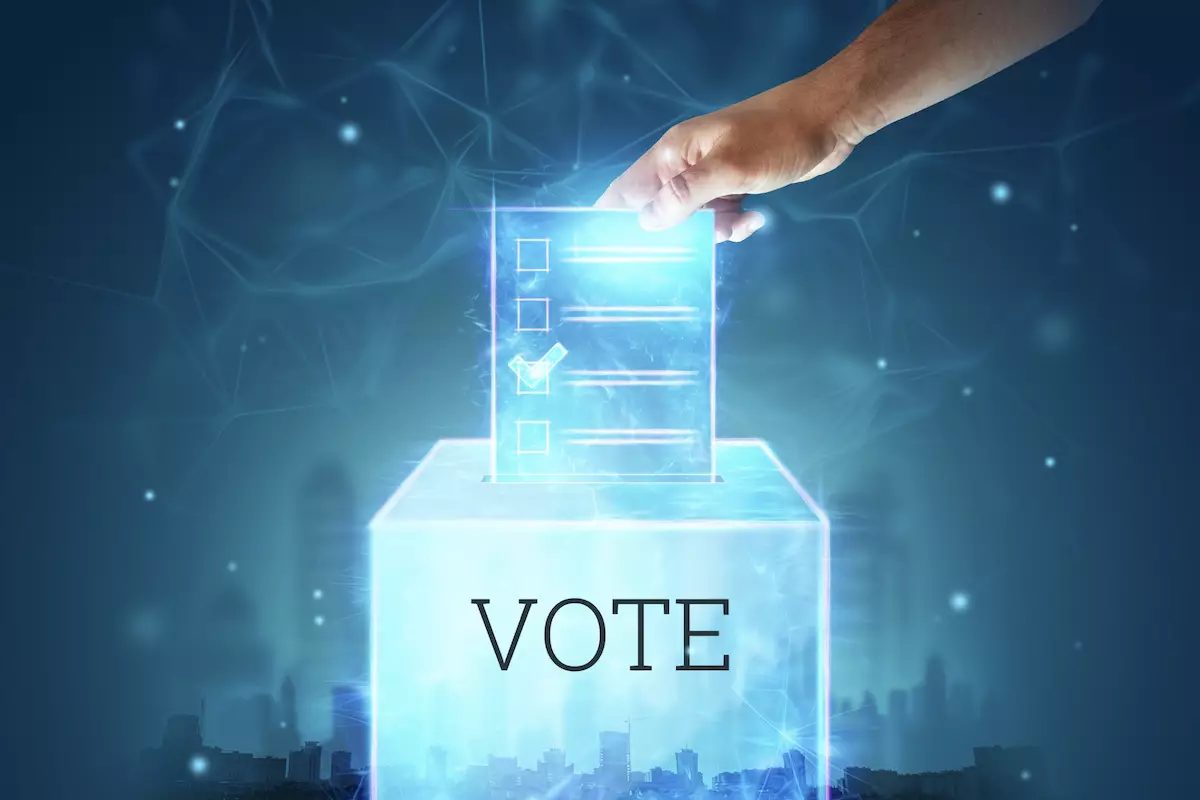In recent years, blockchain technology has emerged as a potential game-changer in various sectors, including finance and logistics. One of the most intriguing applications of this technology is its potential to transform the voting process globally. As countries grapple with issues of election integrity and public trust in democratic processes, blockchain voting offers a solution that claims to enhance transparency, security, and efficiency. However, this innovation is not without its challenges, stirring up debates about its feasibility and implications for democracy.
At its core, blockchain is a decentralized digital ledger that maintains a record of transactions in an encrypted and immutable format. This characteristic positions blockchain as a technologically superior alternative to traditional voting methods which often suffer from vulnerabilities. The allure lies in the death grip it seems to have on potential voter fraud and misinformation. Each vote cast in a blockchain system becomes part of a secure, verifiable record that is exceedingly difficult to alter post facto.
The transparency offered by blockchain technology is a primary selling point. In places where voters are skeptical about the integrity of election results—often fueled by allegations of rigging or tampering—blockchain could empower citizens. For example, in Romania’s 2024 presidential elections, voters will have real-time access to the counting process, ensuring firsthand verification of the legitimacy of the electoral outcomes. Such measures can effectively restore faith in electoral processes, especially in nations plagued by corruption and manipulation.
Moreover, blockchain voting has the potential to democratize access. Traditional voting often excludes those unable to reach polling places due to mobility issues, geographic isolation, or conflicting schedules. By facilitating online voting through secure blockchain systems, we can significantly increase participation and ensure more voices are heard. Financial savings also present an attractive benefit; by reducing the need for physical polling infrastructure and paper ballots, blockchain can streamline processes, resulting in quicker vote counting and lower operational costs.
Despite its merits, the concept of blockchain voting is fraught with complexities that cannot be ignored. Cybersecurity remains a critical concern. While blockchain itself is difficult to breach, vulnerabilities can occur at various points in the voting process. For instance, if a malicious actor intercepts votes before they are securely recorded on the blockchain, the integrity of the election could be jeopardized. Thus, reliance on the technology does not grant immunity from broader cybersecurity threats.
Another contentious issue revolves around voter privacy and ballot verification. Voters must be assured that their ballots are counted correctly, yet maintaining anonymity remains a paramount concern. Striking a balance between transparency and confidentiality is easy to propose but significantly harder to implement in practice. Additionally, the risk of technology-induced disenfranchisement looms large, especially for individuals lacking digital literacy or access.
Furthermore, the financial implications of adopting blockchain voting systems cannot be underestimated. Transitioning to such infrastructure requires considerable investments in technology, training, and public education. For countries already struggling with their electoral systems, the challenge of implementing blockchain may seem daunting or even impossible.
While still in its nascent stages, Romania has begun to implement blockchain technology in its electoral process. With a commitment to transparency exemplified in the upcoming elections of 2024, the Romanian government plans to utilize blockchain systems connected to the European Blockchain Services Infrastructure. This collaborative effort not only demonstrates the potential for intra-European cooperation but also provides an experimental ground for evolving international electoral practices.
Romania’s previous efforts during the 2020 parliamentary elections showcased the utility of blockchain technology in safeguarding voter turnout statistics and simplifying post-election reporting. Positive results from these initiatives suggest that blockchain can indeed modernize administrative aspects of elections, potentially mitigating public distrust in the electoral process.
Looking ahead, intriguingly innovative concepts such as Soulbound Non-Fungible Tokens (SBTs) could redefine how we view voter identification. This novel form of digital representation could act as a digital ID for eligible voters, coupled with secure authentication like biometric data. By linking SBTs to voting activities, instances of double voting may be effectively eliminated, while also simplifying the voting process for those needing to cast their ballots online.
Although the incorporation of SBT technology remains largely hypothetical, it raises questions about the evolution of voting processes rooted in blockchain. With appropriate safeguards in place, such innovations could pave the way for a significantly more inclusive and secure electoral landscape.
Blockchain voting holds enormous potential to reshape the future of democratic processes. With its promises of transparency, security, and accessibility, it allows fresh hope for restoring trust in elections. However, the myriad challenges—ranging from cybersecurity to economic viability—remain significant hurdles that demand careful consideration. Countries like Romania can provide valuable insights into the viability of blockchain systems for voting, but substantial public education and infrastructural development will be needed to ensure successful implementation. Ultimately, if these systems can navigate the intricate web of challenges, they may ultimately redefine how we participate in democracy.

